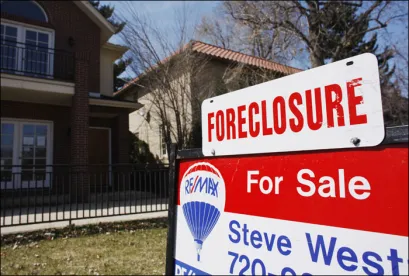On Monday April 20, 2020, Massachusetts Governor Charlie Baker signed into law an emergency act that will temporarily ban almost all eviction and foreclosure proceedings statewide during the COVID-19 pandemic. That law, H4647 (the “Act”), will significantly impact the rights of financial services companies to enforce mortgage loans through foreclosure in the Commonwealth. Mortgagees need to be aware of many new restrictions and obligations to avoid missteps as the crisis unfolds.
Summary of the Act
After several weeks of debate in the House and Senate, Governor Baker signed the compromise law providing immediate and temporary relief to Massachusetts renters, homeowners, and small businesses. The Act provides that creditors, mortgagees, and other authorized persons/entities shall not:
a) Publish a notice of foreclosure sale;
b) Exercise a right of entry;
c) Initiate judicial and non-judicial foreclosure proceedings; or
d) File a complaint to determine the military status of a mortgagor under the Servicemember’s Civil Relief Act. [1]
These prohibitions will extend for no more than 120 days from the date of enactment, or 45 days from the date the Governor lifts the state of emergency in Massachusetts, whichever comes first. [2]
The Act also requires mortgage holders to grant a forbearance for up to 180 days to any borrower claiming a COVID-19-based hardship and further provides that any payments subject to the forbearance will be added to the end of the term of the loan unless otherwise agreed to by the mortgagor and mortgagee. [3] In addition, the Act prohibits mortgagees from imposing fees, penalties, or interest during the forbearance, thus treating the loan as if the borrower made all payments timely and in full under the terms of the mortgage. [4] Further, mortgagees are barred from furnishing negative mortgage payment information to credit reporting agencies related to mortgage payments subject to forbearance. [5]
Considerations for Mortgage Holders
While the Act suspends foreclosures within the state and offers relief to borrowers struggling to make mortgage payments during the COVID-19 economic downturn, the Act has limitations. The Act makes clear that “[n]othing in this section shall be construed to relieve a mortgagor from the obligation to pay their mortgage or restrict the ability of a creditor [or] mortgagee … from recovering mortgage payments” in the future. [6] As noted above, the moratorium will only be in place for the sooner of 120 days from the date the Act is signed into law or 45 days from the date the Governor lifts the state of emergency in Massachusetts. Further, under the time limitation set out in the Act, no mortgagee is required to grant a forbearance to any borrower who submits a claim for hardship after the expiration of the moratorium. [7]
While the Act does not include penalties or private enforcement mechanisms, mortgagees and creditors should be wary that aggrieved consumers may pursue violations of the Act via the state’s consumer protection statute, M.G.L. ch. 93A, which prohibits “unfair and deceptive” acts and practices. Since Chapter 93A provides for double or treble damages and attorney’s fees, mortgagees will want to make best efforts to comply with the Act to avoid the risk of liability. [8] While there is substantial overlap between federal relief, depending on the type of mortgage loan, as well as internal policies, the Act may offer even greater protections so mortgagees should ensure compliance with all applicable laws.
Conclusion
The Act implements new obligations and restrictions on mortgagees’ ability to enforce mortgage loans. Mortgage holders must be sure to suspend all foreclosure actions in Massachusetts while the state grapples with COVID-19, but should continue to monitor the situation in the Commonwealth and may resume normal foreclosure proceedings once the moratorium is lifted.
NOTES:
[1] Massachusetts Bill H.4647, § 5(a) available at: https://malegislature.gov/Bills/191/H4647.
[2] Massachusetts Bill H.4647, § 7. The Governor may, however, extend the moratorium for an additional 90 days so long as the extension does not extend more than 45 days beyond the date the declared state of emergency is lifted. Id.
[3] Massachusetts Bill H.4647, § 5(b) (“A creditor or mortgagee shall grant a forbearance to a mortgagor of a mortgage loan for a residential … if the mortgagor submits a request to the mortgagor’s servicer affirming that the mortgagor has experienced a financial impact from COVID-19.”).
[4] Id.
[5] Id.
[6] Id. at § 5(c).
[7] Mortgagees will have to remain cognizant of any foreclosure moratorium applicable to federally-backed mortgage loans that may be in place when the Act expires.
[8] Chapter 93A liability during the COVID-19 state of emergency may exist for creditors enforcing non-mortgage loans as well. On March 26, 2020, the Massachusetts Attorney General’s Office issued temporary regulations, on an emergency basis, prohibiting certain debt collection activities in Massachusetts for the duration of the COVID-19 emergency. See 940 CMR §§ 35.00, et seq. The Act and other emergency regulations intended to benefit consumers will likely impact creditors in Massachusetts and create liability risk during this challenging period.





 />i
/>i

